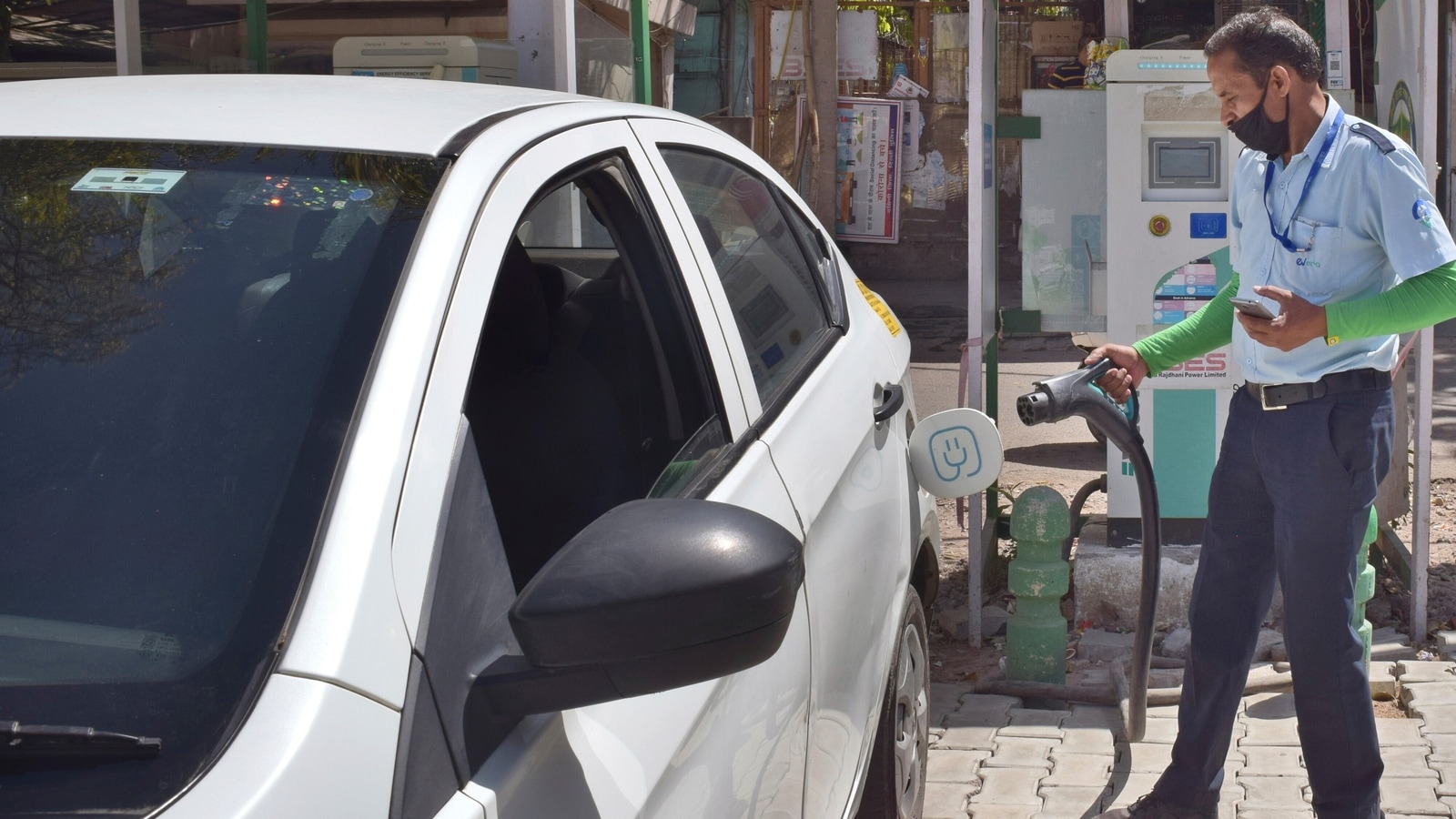[ad_1]
Organization-leisure tourists are a expanding breed, and vacationer hotspots want their trade.
In the new entire world of get the job done, there’s a new sort of staff: The small business-leisure traveler. It’s the most current try to discover a pleased medium involving performing arrangements like Airbnb Inc.’s — where by staff can function anyplace, anytime — and these at providers like Tesla Inc., whose chief executive officer Elon Musk tweeted that unless workforce flip up in the office environment, “we will think you have resigned.”
Company-leisure vacationers are a subset of digital nomads, dwelling and functioning overseas for for a longer period than a normal holiday without having getting up permanent residence. They normally shell out weeks or months overseas prior to returning dwelling, when other nomads could shell out many years on the highway.
David Abraham recognized there was a industry for this style of extremely-remote doing the job while at his laptop in a Tokyo Starbucks. When he noticed the prospects all around him were being working also, he asked himself “why couldn’t they be in an awesome position like Bali?” Abraham now runs Outpost, a enterprise that provides short term residing-doing work areas in Indonesia and Sri Lanka.
Employees’ developing enthusiasm for company-leisure journey is bit by bit getting fulfilled with plan momentum. Governments are hoping to get the job done out visa and tax regulations while enterprises fret about compliance and company lifestyle.
Officials in tourism hotspots Thailand and Indonesia see the longer-term vacation pattern doing work in their favor — if absolutely everyone can get the procedures correct.
On the Indonesian island of Bukabuka, a four-hour-as well as journey by airplane and boat from the money city of Jakarta, eco vacation resort Reconnect is viewing a surge in inquiries from foreigners. Now that borders have reopened, overseas people with plans to operate remotely are booking sojourns of everywhere in between a month and fifty percent a yr.
The resort options significant communal areas and function stations, prepared to accommodate the new cohort of organization-leisure vacationers. Most days, the Web is secure more than enough much too.
“But the main promoting place is really the island by itself,” claimed Reconnect founder Thomas Despin. Between Zoom meetings, visitors can go snorkeling, master the area artwork of spearfishing, and even get pleasure from a barbecue in the center of the sea.
There is just one disadvantage: “Potential guests question us, how legal is it for me to arrive and remain and operate?” Despin mentioned. “At the minute, we don’t have a particular remedy.”
Beneath Indonesian regulation, everyone who stays in the state for 183 times in a 12-thirty day period period is lawfully thought of a tax resident. But paying out taxes involves a perform allow usually referred to as a KITAS, which isn’t out there to people touring on a tourist visa. That leaves some would-be business-leisure tourists in a lawful grey place.
In April 2021, Indonesia floated the notion of a specific 5-year visa exempting remote personnel from having to pay community taxes if they do not make an revenue domestically. But there’s no timeline as nonetheless.
“You really do not want to just be hoping for the greatest when it comes to your visa status,” explained Despin. “You want to know what the rules are.” Colleagues of his have still left Indonesia for Mexico, Portugal and neighboring Thailand, where by immigration and tax legal guidelines are a lot more supportive and clearer.
Considering the fact that 2019, far more than two dozen countries have introduced “digital nomad” schemes that enable individuals to reside and do the job remotely for a period of time of months or even decades, according to Migration Policy Institute analyst Kate Hooper, who analyzed facts from regulation organization Fragomen.
Thailand commenced experimenting early in the pandemic with applications designed to bring in more time-phrase travelers, these kinds of as golfing-program quarantines and “sandbox” preparations. The region acquired about one particular-fifth of its financial juice from tourism before Covid-19 arrived.
Now, in the spirit of focusing on more electronic nomads and small business-leisure travelers, the authorities has approved tax incentives for extensive-time period visa holders and will elevate all remaining Covid-linked entry restrictions from July 1.
The nation has various furthermore factors for for a longer time-expression website visitors who also program to perform, in accordance to tourism minister Phipat Ratchakitprakarn. “The Net in Bangkok and in several massive cities is rapid,” he claimed, while Thailand also offers “service and atmosphere” and a rather lower expense of residing.
And, he additional, “we do not tax electronic nomads. Their money is produced abroad.”
The following round of tax improvements can not arrive shortly adequate for the country’s however-having difficulties hospitality field.
“I am sure we can compete in phrases of fundamentals but the difficulty is coverage implementation,” mentioned Bhummikitti Ruktaengam, president of the Phuket Tourist Affiliation. He argues that a straightforward visa software process is desired to bring in functioning travelers.
“They won’t come if they will need to fill up a pile of paperwork,” he mentioned.
For a longer period-phrase site visitors may perhaps deliver economic benefits, but they can also build challenges for the area inhabitants, a Migration Coverage Institute report details out. Rich guests bring with them soaring expenditures of living, escalating level of competition for methods and linked tensions “as evidenced in present hotspots these types of as Goa and Bali.”
Though governments face a significant established of problems in marrying a tourism revival with relieve of undertaking company, corporations have their have record of fears.
At proven companies, chief money officers often have little hunger for Airbnb-design employee flexibility because of tax problems and other liabilities, according to Simon Hayes, director of the Asia CFO Network.
Yet lots of business leaders are accepting what their human means departments already know: Most businesses will be forced to preserve up with the occasions.
Small business-leisure vacationers apart, tight labor markets all around the planet are providing staff the ability to demand additional overall flexibility. Over the next a few to six months, Hayes expects far more providers to established up remote-do the job choices for all those staff members who are trusted to get their jobs done on the seashore or elsewhere.
There is a obvious willingness to at minimum think about looser guidelines about remote do the job, in accordance to an Asia CFO Community survey of 31 multinational companies throughout the Asia-Pacific location. But there are also important issues, with tax issues and “corporate tradition dilution” at the top of the listing.
“One challenge is navigating the tax, social protection, and work and labor provisions of equally countries to be certain compliance in both equally spots,” explained MPI’s Hooper. A further is the threat of triggering long-lasting institution guidelines that may well incur corporate tax obligations, she claimed.
While enterprise-leisure vacation is not about to overtake other varieties of vacation, it is however an opportunity for tourism-major economies.
“It’s a expanding segment but will continue being a ‘niche’ segment,” stated Margaux Constantin, a partner at McKinsey & Co. who leads the firm’s get the job done in tourism. The opportunity for large paying on extended-than-common visits tends to make company-leisure vacationers an desirable industry, she stated.
“It’s not astonishing to see that some destinations are actively prioritizing this segment as aspect of their tourism approach.”



